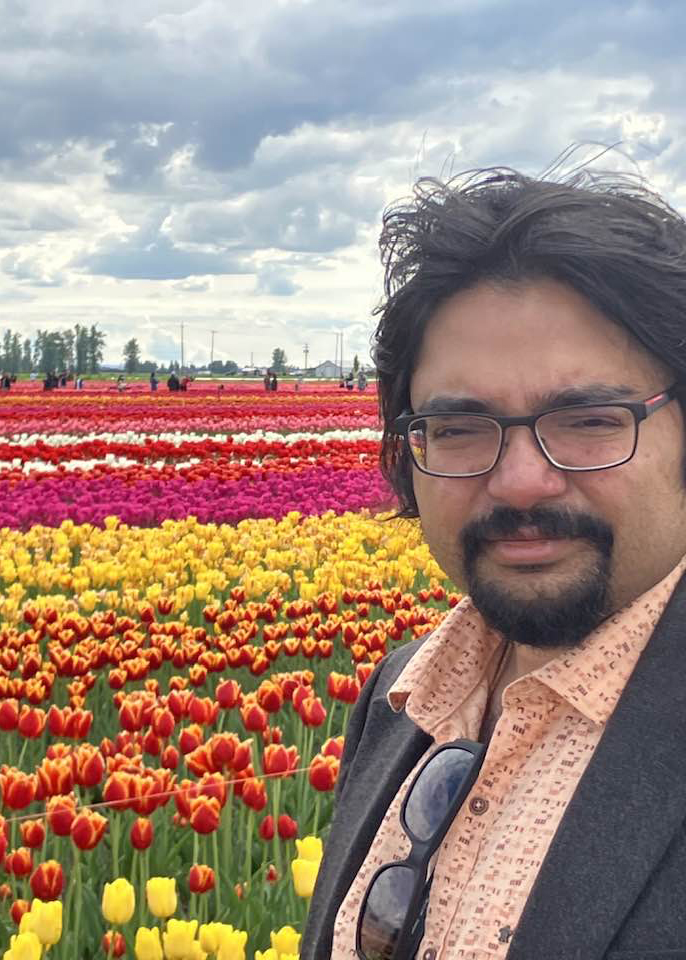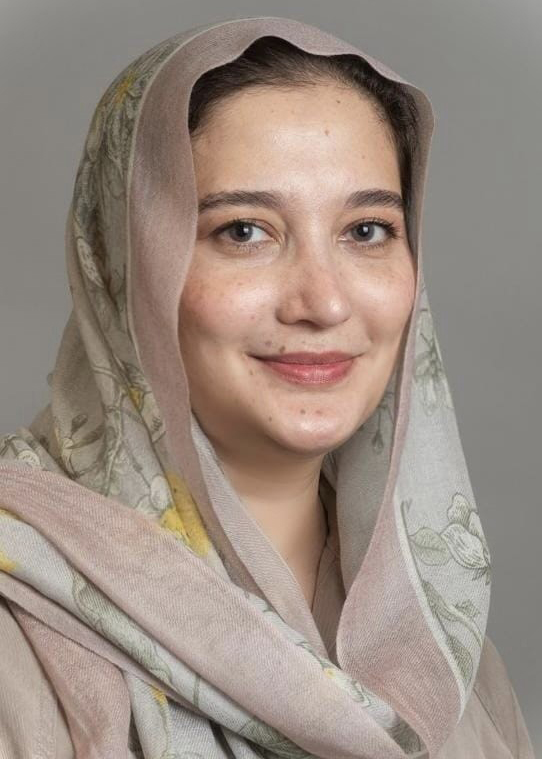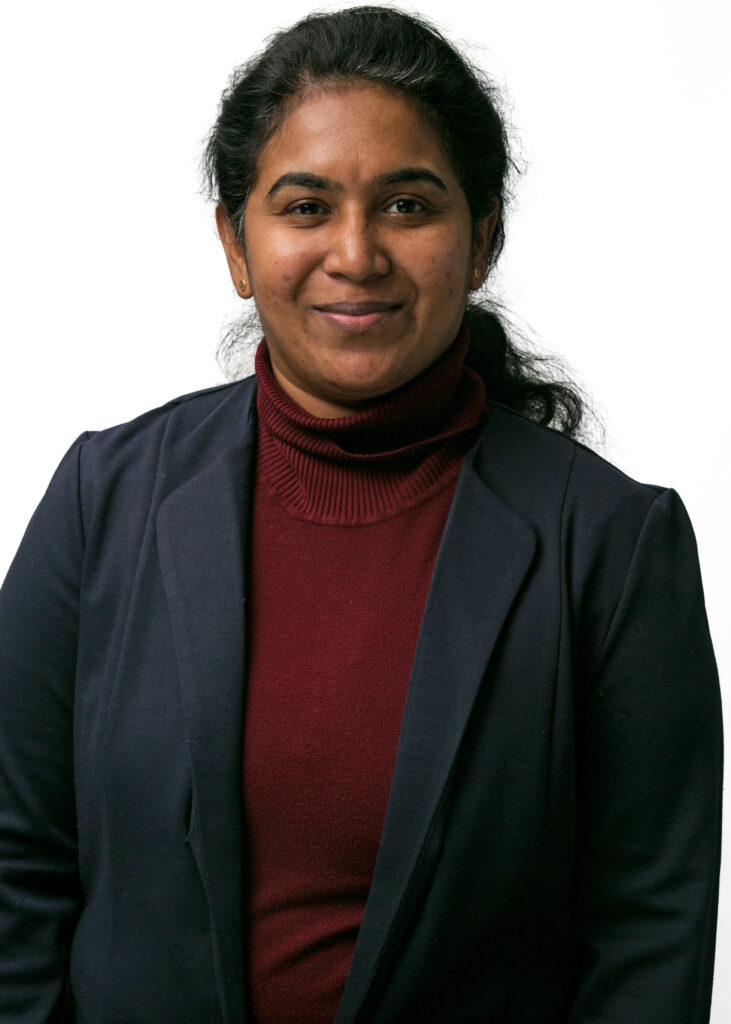Meet the new faculty in the Gildart Haase School of Computer Sciences and Engineering
Give a warm welcome to the new faculty in the Gildart Haase School of Computer Sciences and Engineering!

FDU: How can AI, other than ChatGPT, be applied to our everyday lives and what are some of the caveats to adopting it?
Sourav Mukherjee: I think we are still in the early stages of exploring the full breadth of AI applications, which is one reason the field is so exciting. In healthcare, AI can help with cancer detection, epileptic seizure detection, new drug development, and so on. In law, AI can help sift through numerous documents to identify those that may be relevant. In higher education, AI can help teachers and curriculum developers better identify factors that improve student satisfaction. The list goes on.
When an AI model predicts a certain outcome for a given input, it is natural to ask how it arrived at that conclusion. It turns out that answering this question is not easy since many AI models are not readily interpretable. Development of explainable AI is an exciting challenge faced by researchers today.
FDU: Who was your favorite teacher when you were a student?
SM: My favorite teacher is Tim Oates, under whose supervision I completed my Ph.D. in computer science at the University of Maryland Baltimore County (UMBC) in 2010. I have always been amazed by how clearly he can explain difficult concepts to students. During my Ph.D. journey, he constantly provided me with valuable guidance and encouragement. I view him as a role model in my own teaching and research activities.
FDU: What brought you to FDU?
SM: After several years of industry experience, I felt that it was time to help others acquire skills to be successful in this field. When I received the opportunity to join FDU Vancouver as a lecturer in summer 2018, I was thrilled.
In addition to teaching in the Bachelor of Science in Information Technology program, I participated in the effort to initiate the Master of Science in Applied Computer Science (MSACS) program, and supervised highly motivated students as they conducted research in machine learning. After the MSACS program launched, I started teaching in that program as well.
In fall 2023, I began my new role as assistant professor at FDU Vancouver. Currently, I teach graduate level courses, supervise capstone projects at both graduate and undergraduate levels, and provide research supervision to a few brilliant students.
 FDU:What brought you to FDU?
FDU:What brought you to FDU?
Salma Noor: Most of my research has been multidisciplinary with a focus on digital cultural heritage preservation using web technologies. I have always been interested in the applied aspects of computer science in other domains, so the program at FDU felt like a natural fit to what I wanted to teach.
FDU: How can developers make the web less vulnerable to the spread of misinformation?
SN: In grappling with the pervasive challenges of web misinformation, as web developers and scientists, our strategic response should encompass several initiatives. We should prioritize the establishment of robust source verification mechanisms, utilizing advanced cryptographic methods for authentication. Simultaneously, fostering user education through user-friendly interfaces and fact-checking tools is crucial. As responsible software developers, advocating for algorithmic transparency to prevent unintended misinformation amplification is of paramount importance. Collaboration with respected fact-checking organizations, integrating community reporting mechanisms, and promoting media literacy initiatives collectively bolster defenses against misinformation. Lastly, emphasizing ethical digital practices is integral to navigating this complex landscape. It can’t be stressed upon enough. Recent missteps by technology giants highlight the critical importance of ethical considerations.
FDU: Beyond your work, what do you consider to be your greatest achievement or accomplishment?
SN: Learning to always, always, have a positive outlook towards life and finding beauty and meaning in almost everything, big or small, is my greatest achievement. I have managed to pluck happiness and collect good memories through all seasons of my life.
I have an opportunity here as an educator to encourage others to do the same. My most cherished accomplishment lies in the collaborative endeavors I’ve undertaken with museums and archaeological sites to make our past accessible to a global audience.
 FDU: How does your experience with communication information engineering relate to your interest in autonomous vehicular networks?
FDU: How does your experience with communication information engineering relate to your interest in autonomous vehicular networks?
Anitha Saravana Kumar: As a lifelong learner with a passion for information technology and mathematics, I chose research and teaching as a career path. I completed my first doctorate in information and communication. The topic of my research was Self-Adaptive Secure Routing Algorithm for mobile Ad hoc networks. The study concentrated on a secure method of adaptive routing based on machine learning concepts. As a result, I participated in several studies, including “Smart Street Infrastructure Using Internet of Things” and “An Advanced Mother and Childcare Management Architecture.” The wealth of knowledge and amazing concepts of edge networks stayed with me and pushed me to do significant work in edge networks using machine learning. Having a strong knowledge of sensors, computation, programming, and communication technologies, combined with the rapid evolution of AI approaches, has fueled my desire to conduct a second Ph.D. in autonomous vehicular networks.
FDU: Beyond teaching and research, what gives your life meaning?
ASK: Life is beautiful, and the motto for me is to live each moment and experience your uniqueness. As a mother of two children, spending time with my family makes me happier.
FDU: What brought you to FDU?
ASK: FDU has a positive, supportive environment and amazing people. The work is interesting, and I get a sense of accomplishment from it. I believe my skills are particularly well-suited to this position.